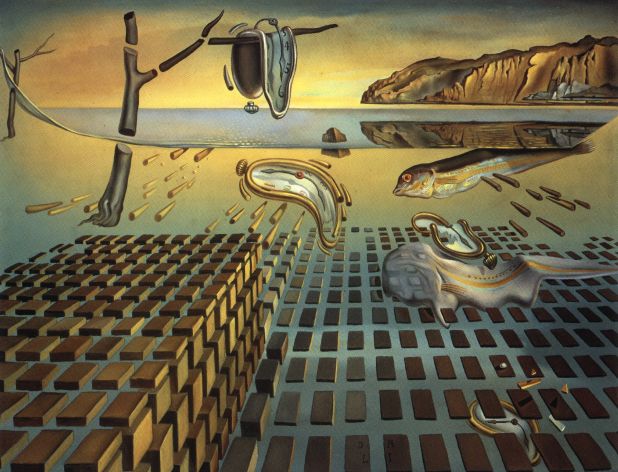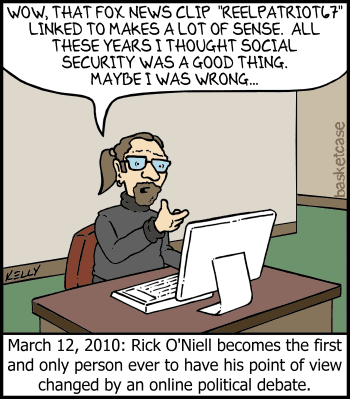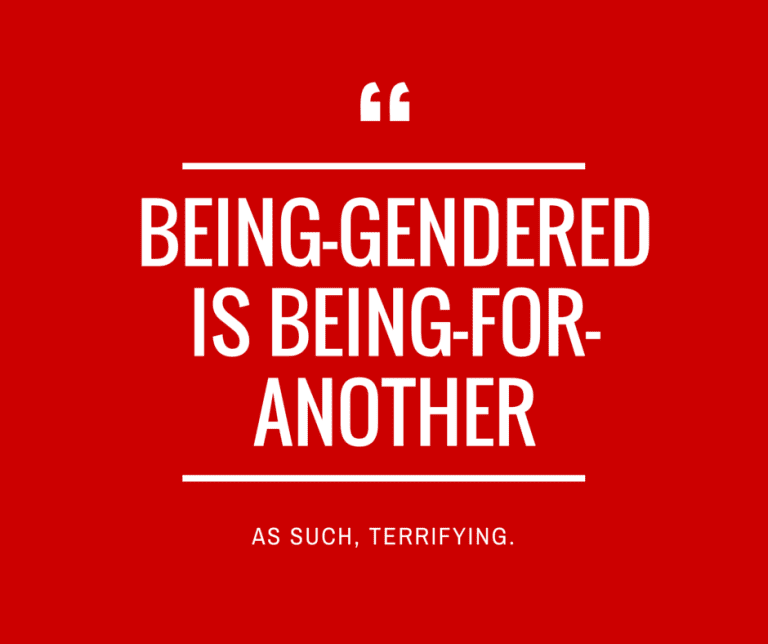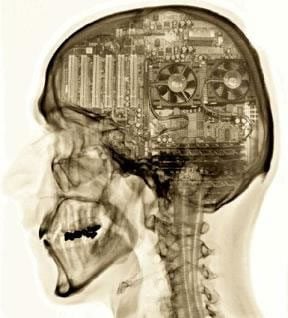
The Jews said that idol-worshipers would become like their idols. Well, God save the Jews — we are becoming our computers. We memorize less — we “access” more. We “open files” on command, use them, and consign them to an oblivion from which they rarely arise.
How heartbreakingly obvious this is in Internet “debates,” wherein combox-combatants look up their arguments as they argue, google logical fallacies as they accuse each other of them, gathering evidence as it becomes necessary. It’s not that one cannot reach a position of justified belief through this method. No, I break out in “existential hives” — to quote, if I remember correctly, Pope Francis — because none of what is being said means anything to anyone. Reading Facebook debates is like listening to a schizophrenic Wikipedia mumble out an argument with itself. It is not what dwells within being made manifest — it is what dwells without being referenced without citation. Whoever wins, the Internet wins.
Memory is married to meaning. What stays in us is usually what matters to us — this the joy and the sorrow of the stuff. The countless times I’ve purchased gas or put on socks — scattered in the oblivion of forgetfulness and the smear of generality. The day my friend killed himself — present, roaring into the mind, even when I would it scatter. Our capacity for memory is not naturally disposed to a deluge of information. It does not catch everything. It filters. It distills. It narrows life to what matters, drawing meaning from the meaningless, narrative from history, poetry from “information,” and story from facts following facts. Memory is not the historiographer of existence — she is the bard.
But behold, the Internet mind! We give what is most meaningful to technology for safekeeping, filming and photographing every encounter we deem noteworthy. Whether with an important person, a wonder of nature, a work of art or a testament of human history — we are there, snapshot, grinning desperately. We look everything up — the physicists, the philosophers, the theologians and the poets. We can save every note, upload every quote, and post every experience — and we do, with greater or lesser vigor, giving the task of rescuing and upholding our meaningful past to technology.

Technology is not a neutral alternative to an active, honed memory. It keeps an event, but as a dead thing waiting to be accessed — not as a life within me, not as a psalm leaping to the lips.
A mind that does not “take to heart” and “commit to memory” will not cease to remember — it will lose it’s capacity to distill, to select. Unable to build a narrative out of the deluge of events, it floats in the base, attractive, shiny and distracting. A memory that gives itself to technology does not grab things and hold them there — technology does that. Rather, in this passive mode, it is grabbed. Our minds become the fertile ground for the windblown seeds of the novel, the perverse, and the titillating, no longer the creator of a legend, but the weedy creation of culture, saying with Patrick Stickles of Titus Adronicus: “And half the time I open my mouth to speak / It’s to repeat something I heard on TV.”
When memories cease to be a living presence and become saved files, they tend towards a perverse equality with every other memory. My friends who die show up on my News Feed beneath advertisements for tacos and below the saved and stored photos of the “Beach Week 2014” of white people I don’t know — I pray, but am not confident, that this will not effect my spiritual encounter with the reality of my friends’ newfound absence. The danger of giving our memories to technology is that technology does not discriminate. When I do not work to contain within myself living memories to spring up in response to the joys and sorrows of life, when all my meaningful memories are accessible and referenced “out there” instead of living “in here,” then I have lost my capacity to remember meaningfully — I do not carry a story of my own life within me. Facebook has my “timeline,” and the timeline is trivial.
Without the labor of ritual, the soul-shaping work of carrying words and beautiful images in side of our minds and hearts, the discipline of memorization, and that self-shaping prayer of the heart, we will become unable to distinguish the important from the unimportant — unable to forget what we ought in order to keep what we ought.












